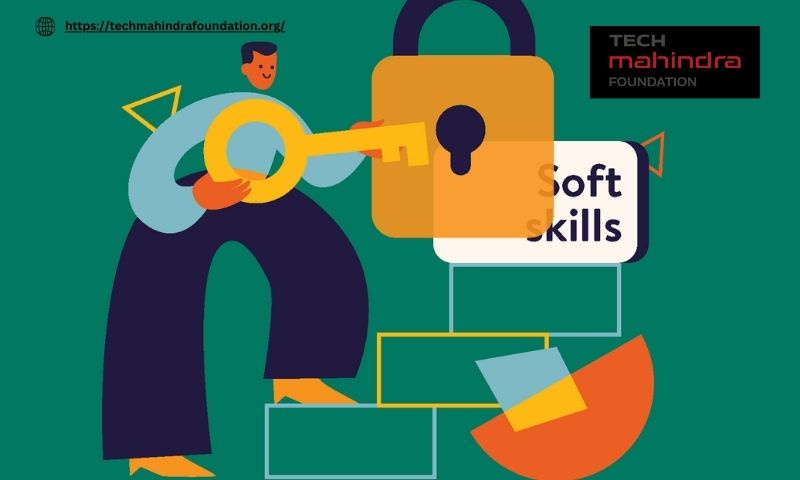When it comes to hiring, hard skills are prioritised by many organisations. In other words, they will search for abilities unique to the position as well as the education or experience required for successful completion of the work.
It is impossible to overstate the value of suitable education, soft skills training, and work experience, but you also need to take into account less measurable abilities like soft skills. Ultimately, it goes beyond simply employing the best skilled and competent workers. Their ability to collaborate as a team is crucial to both their personal and the organization's success.
What are soft skills?
Soft skills are more concerned with an individual's identity than their training. They stand for how you live and conduct business. Soft skills, to put it simply, are interpersonal abilities that are built into a person's personality and that define how you engage with others in the job.
Soft skills are essentially the interpersonal, personality, and communication skills that your workforce will require for your organisation to succeed in the long run. Employees must interact with people in practically every capacity, both inside and outside of your company, thus these are important talents to have.
Soft skills vs hard skills
We've already covered how soft skills are less dependent on education or experience and more personality-focused. People skills, social skills, character attributes, interpersonal abilities, and transferable skills are examples of soft skills.
Conversely, job-specific technical skills are known as hard skills. Your workforce's hard skills are derived from their training, education, certifications, and job experience. These are quantifiable, teachable skills that can be put to the test through assignments and assessments. soft skills training is frequently more difficult to develop and challenging to assess and measure than hard abilities, which can be learnt and mastered over time.
Using a course instructor as an example, let's look at the typical hard and soft abilities needed for this position.
Instructor’s hard skills:
- Deep familiarity with the programme
- Making instructional plans
- Creating instructional plans
- grading student assignments, tests, and other assignments while utilising the proper technologies (LMS, uploading courses, etc.)
Instructor’s soft skills:
- Problem-solving and communication
- Analytical reasoning
- Organisational Guidance
Soft skills examples
Without a doubt, hard talents are necessary. These are the minimal qualifications that staff members need to fulfil in order to do their jobs. Research indicates that 90% of what propels people up the success ladder, however, comes from soft skills training. Let's look more closely at a few instances of soft skills that are in demand in any industry:
- Personal drive
- Flexibility in Organisation, Time management, Creativity, and Teamwork
- Resolving conflicts
- Joyful
- Critical observation, problem-solving, leadership, and communication
Why you should care about soft skills
Soft talents are in high demand, and more organisations are now recognising their value. Your workers will be self-assured and content with soft skills, which will help your business thrive. Although this isn't always the case, many businesses believe that their staff possess the most transferable soft talents. It's naïve to think that your people will just know how to behave in non-technical work environments. It's equivalent to presuming that every employee is the same individual!
The CEO of LinkedIn, Jeff Weiner, claims that soft skills represent the biggest skills gap in the US. Certain departments within your company may be having difficulties if your personnel has a sufficient amount of technical talent but insufficient soft skills.If one of your employees excels at drawing in customers but struggles to retain them, you may have a soft skills mismatch. Fortunately, soft skill deficiencies in your organisation may be filled with training.
Benefits of soft skills training courses
In early 2018, LinkedIn conducted a survey across 100 US metropolitan locations and found that there is a 1.4 million person gap in communication skills. It makes sense to teach your employees in these crucial soft skills, including communication, since they may contribute to the success of your company.
There are several ways to provide your employees with soft skills training. Soft skills training can be covered in whole courses as part of employee onboarding, or you can include a soft skills portion in your current course curriculum. There are several advantages to providing your staff with soft skills training, such as:
More effective communication
There will be an improvement in the quality of communication between your staff and your clients or consumers. You'll be giving kids the tools they need to listen, communicate more effectively, and handle challenging situations.
Stronger leadership
With soft skills training your staff members will be more capable of assigning tasks, giving and receiving criticism, accepting accountability, and inspiring others and themselves to meet goals.
Improved problem solving
Your staff members will possess the ability to be proactive in identifying issues and possible roadblocks to tasks, goals, and projects. They will also be able to recognise problems, put remedies in place, or suggest other fixes.
Enhanced creative and critical thinking
Giving your staff soft skill training empowers them to "think outside the box" in a creative and analytical sense. With these abilities, individuals will be able to consider all of their alternatives and make wise choices, increasing their chances of getting the intended outcomes.
Better teamwork, efficiency, and productivity
In the end, soft skills training at Tech Mahindra Foundation enables your staff to cooperate and work as a team to accomplish corporate goals and objectives. Consequently, this results in increased production and enhanced efficiency.
Hard talents should not be overlooked; both soft and hard skills are equally vital, despite the growing popularity of emphasising soft skills. In order to create a workforce that is well-rounded and equipped with the skills needed to perform successfully, give both equal weight in your learning and development plan. Check out our piece on how to be a good trainer, where we examine the four steps / attributes to assist you along the path, if training is a priority for you.


No comments yet